Electrical and Electronic Engineering
Building a future with sustainable engineering strategies
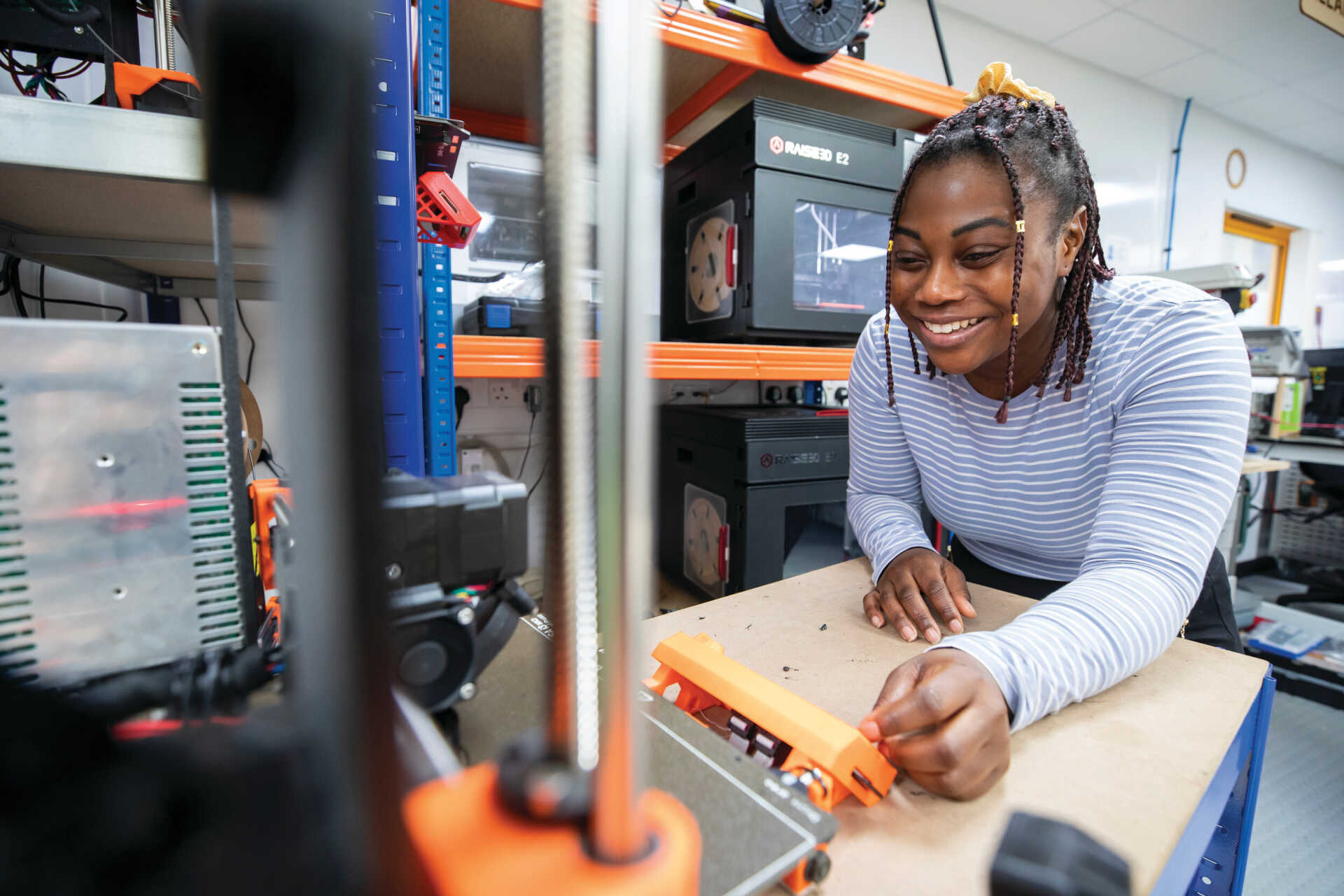
Building a future with sustainable engineering strategies
Electrical and electronic engineering touches on almost every aspect of modern life, and with sustainability so important for the world right now, there’s never been a better time to study this area.
From renewable energy generation to smart power distribution and the development of low powered embedded devices, Kent will provide you with the specialist knowledge and broad skills in both disciplines; making you career ready for the future direction of engineering.
The fourth year of this MEng qualification brings your engineering skills up to an advanced level. You'll develop in areas like energy storage technology, advanced power electronics and power network management.
We're accredited by the Institution of Engineering and Technology (IET), which enables fast-track career progression as a professional engineer.
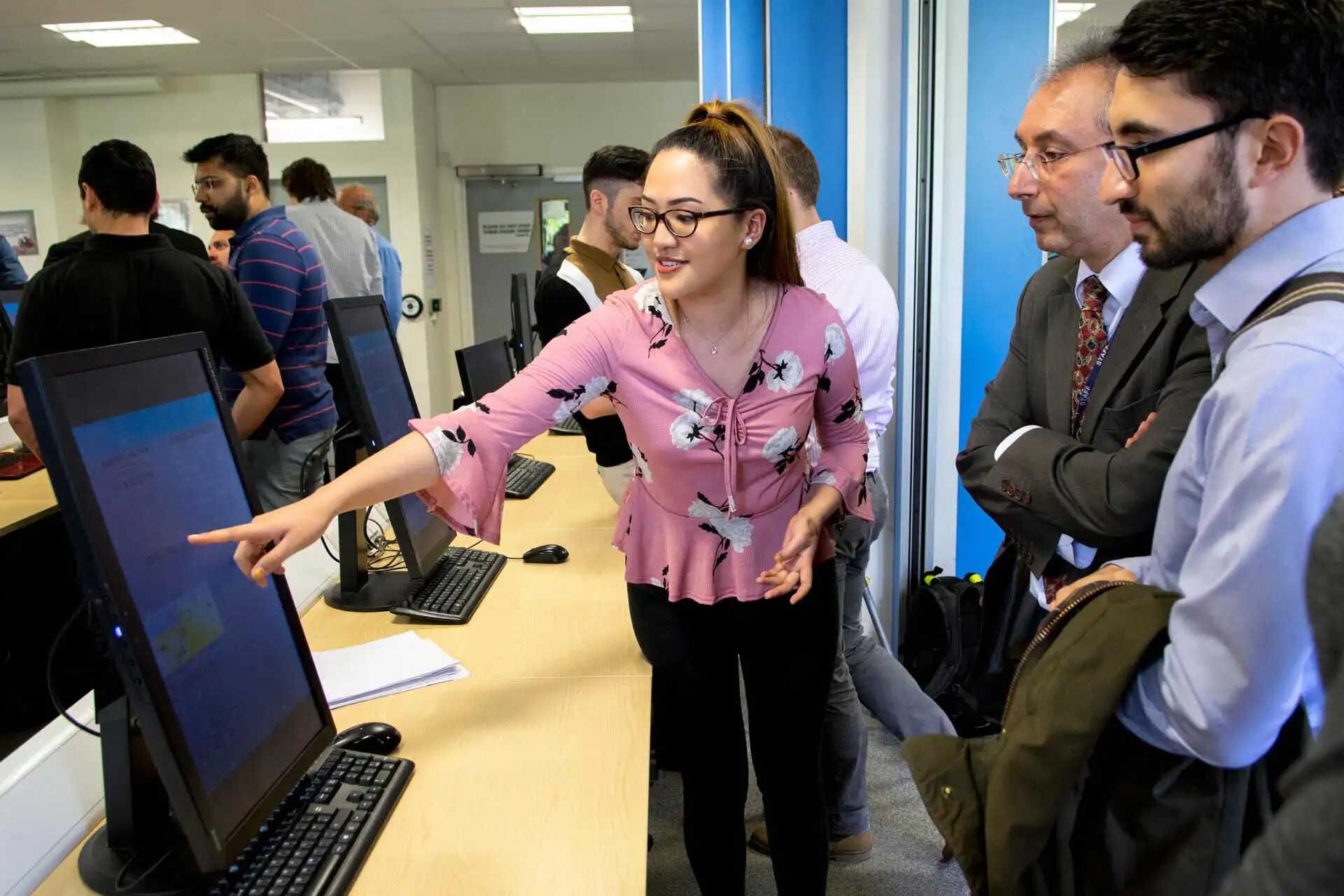
We have excellent industrial links, providing you with many placement opportunities.
The MEng brings your engineering skills to an advanced level.

First-class facilities to support your development with access to computer and engineering labs, mechanical workshop, dedicated makerspaces and more.
With tech rapidly advancing, there's a higher global demand for professional electrical and electronic engineers more than ever before.
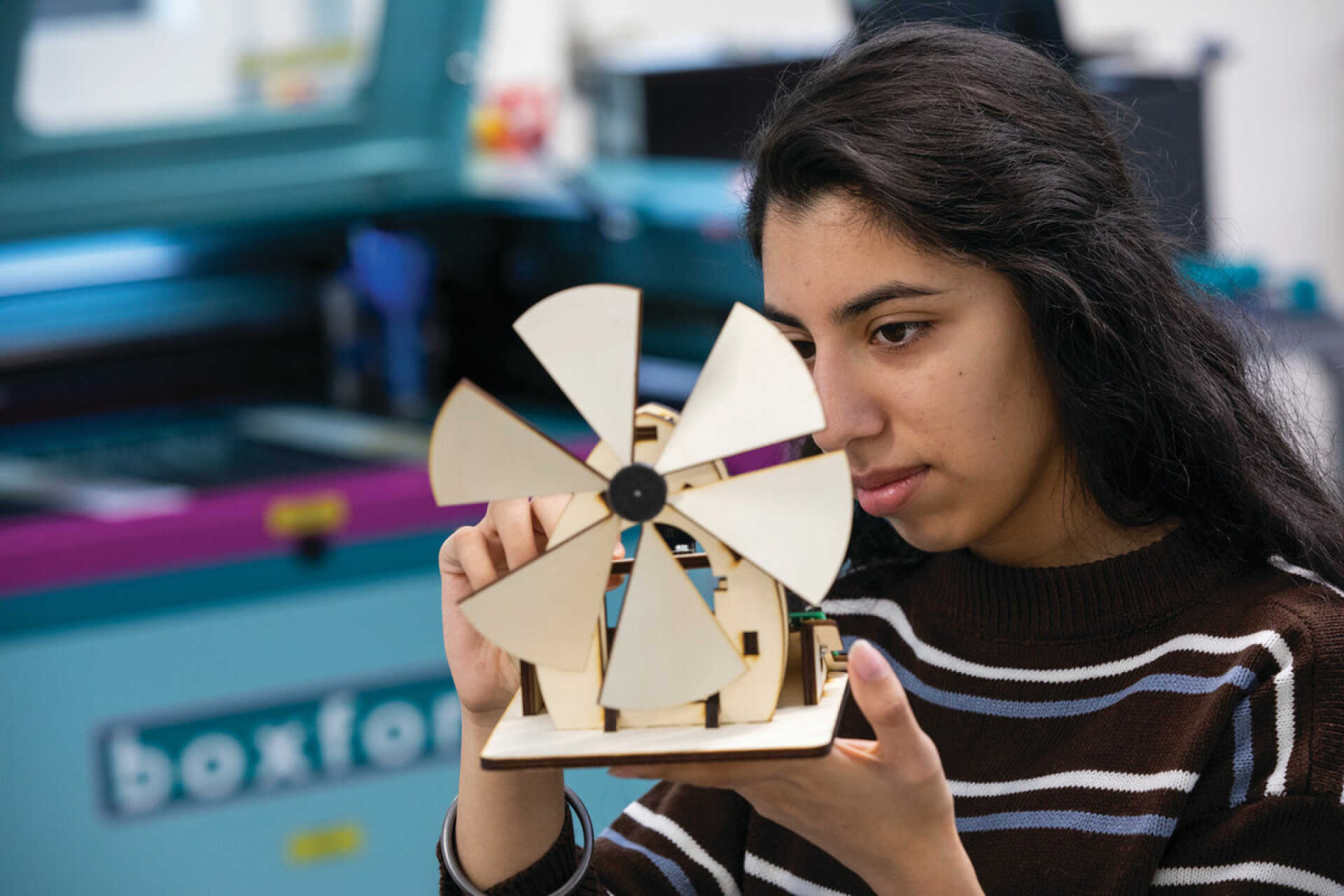
You’ll study exciting subjects like power electronics, renewable energy technology, robotics and systems programming.
Our typical offer levels are listed below and include indicative contextual offers. If you hold alternative qualifications just get in touch and we'll be glad to discuss these with you.
BBB including B in Mathematics plus one other STEM subject.
DMM in an Engineering subject including Further Maths/Further Maths for Engineering Technicians. Other subjects are considered on a case-by-case basis. Please contact us for further advice on your individual circumstances.
120 tariff points from your IB Diploma, including Maths (not Maths Studies) at 5 at HL or 6 at SL, or Maths: Analysis and Approaches at 5 at HL or 6 at SL, or Maths: Applications and Interpretations at 5 at HL or 6 at SL, and a science subject at 5 at HL or 6 at SL, typically H5, H6, H6 or equivalent.
N/A
The University will consider applicants holding T level qualifications in subjects closely aligned to the course.
A typical offer would be to obtain the Access to HE Diploma in a suitable subject with a minimum of 45 credits at Level 3, with 24 credits at Distinction and 21 credits at Merit.
The following modules are indicative of those offered on this programme. This listing is based on the current curriculum and may change year to year in response to new curriculum developments and innovation.
On most programmes, you study a combination of compulsory and optional modules. You may also be able to take ‘elective’ modules from other programmes so you can customise your programme and explore other subjects that interest you.
You’ll gain the skills that will lay the foundation for the rest of your studies – subjects include mechanics, engineering analysis and mathematics.
Compulsory modules currently include:
EENG3130 - Introduction to Programming (15 credits)
EENG3030 - Electronic Circuits (15 credits)
EENG3230 - Engineering Design and Mechanics (15 credits)
EENG3050 - Introduction to Electronics (15 credits)
EENG3110 - First Year Engineering Applications Project (15 credits)
EENG3150 - Digital Technologies (15 credits)
EENG3180 - Engineering Mathematics (15 credits)
EENG3190 - Engineering Analysis (15 credits)
Develop your understanding and techniques of the field, introducing power electronics and conversion, and electrical machines.
Compulsory modules currently include:
EENG5770 - Entrepreneurship and Professional Development (15 credits)
EENG5620 - Engineering Group Project (15 credits)
EENG5650 - Instrumentation and Measurement Systems (15 credits)
EENG5680 - Digital Implementation (15 credits)
EENG5170 - Control and Mechatronics (15 credits)
EENG5xxx - Power Electronics (15 credits)
EENG5xxx - Electrical Machines (15 credits)
Optional modules:
EENG5780 - Systems Programming (15 credits)
EENG5600 - Microcomputer Engineering (15 credits)
Develops technical skills, employability, and soft skills as well as increased awareness of the future context for employment.
Compulsory modules:
EENG7910 - Year in Industry (Industrial Assessment) (90 credits)
You'll look at power transmission and distribution, as well as renewable energy technology. You’ll also be able to choose from a range of modules, so you can focus on your interests, before completing a final-year project in your specialist area.
Compulsory modules currently include:
EENG6000 - Project (45 credits)
EENG6830 - Reliability, Availability, Maintainability & Safety (RAMS) (15 credits)
EENG6730 - Digital Systems Design (15 credits)
EENG6xxx - Power Transmissions and Distribution (15 credits)
EENG6xxx - Renewable Energy Technology (15 credits)
Optional modules:
EENG6460 - Robotics and AI (15 credits)
EENG6770 - Electronics for Communications (15 credits)
EENG5610 - Image Analysis and Applications (15 credits)
EENG6670 - Embedded Computer Systems (15 credits)
EENG6760 - Digital Signal Processing and Control (15 credits)
Compulsory modules currently include:
EENG7500 - Systems Group Project (60 credits)
EENG8290 - Embedded Real-Time Operating Systems (15 credits)
EENG8xxx - Energy Storage Technology (15 credits)
Optional modules:
EENG8270 - Advanced Digital Communications (15 credits)
EENG8xxx - Advanced Power Electronics (15 credits)
EENG8xxx - Power Network Management (15 credits)
Most modules consist of a mixture of lectures, seminars, workshops and computer sessions. All modules are continuously assessed. All years include project work that replicates industrial practice to maximise the employability of our graduates.
For a student studying full time, each academic year of the programme will comprise 1200 learning hours which include both direct contact hours and private study hours. The precise breakdown of hours will be subject dependent and will vary according to modules.
Methods of assessment will vary according to subject specialism and individual modules.
Please refer to the individual module details under Course Structure.
For programme aims and learning outcomes, please see the programme specification.
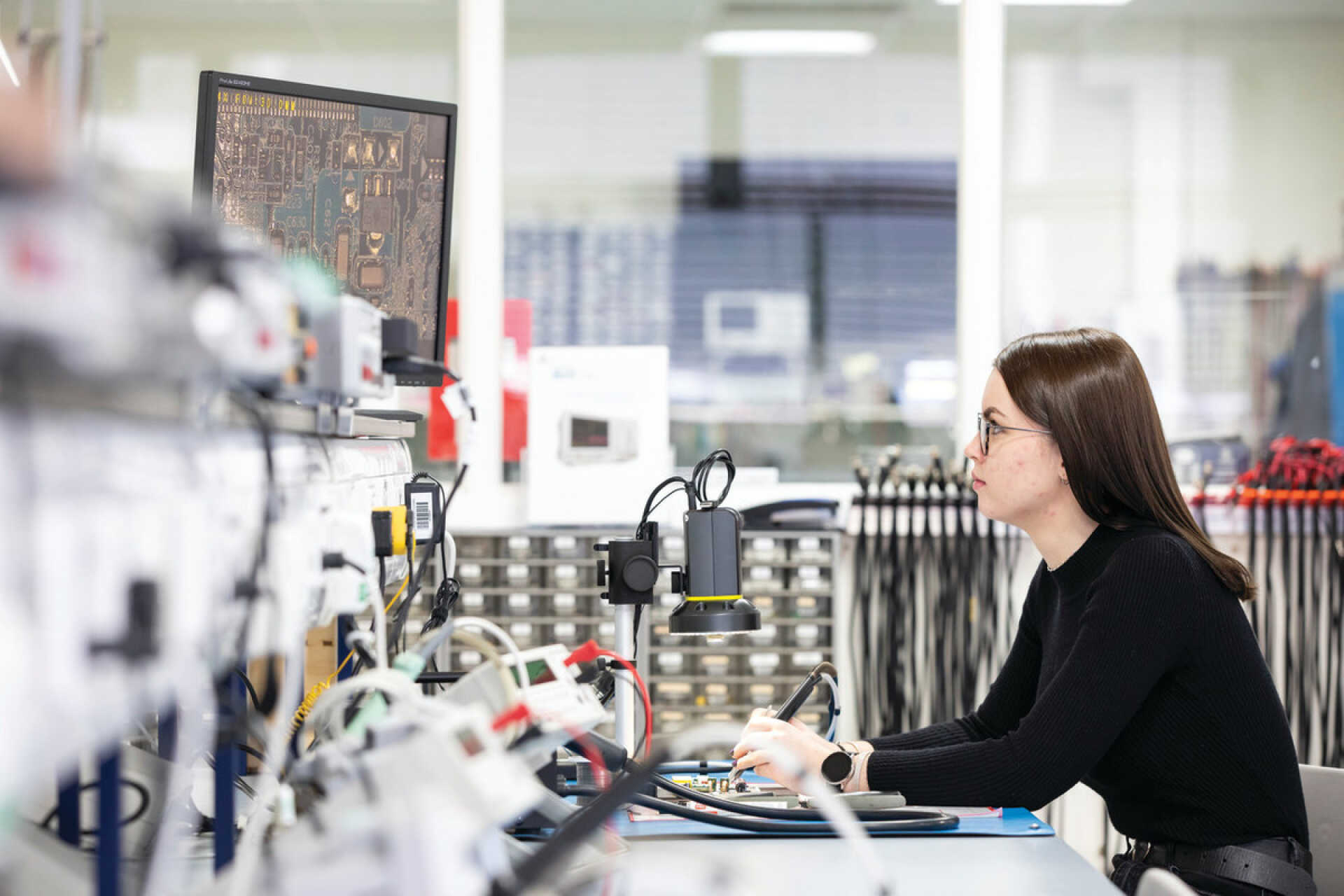
Engineering graduates find employment in a huge range of sectors such as:
For over 30 years, our BEng and MEng courses in Engineering have been accredited by the Institution of Engineering and Technology (IET), which enables fast-track career progression as a professional engineer.
The School of Engineering holds an annual Employability and Careers Day where you can meet local and national employers and discuss career opportunities. Ongoing support is provided by the School’s dedicated Employability Officer.
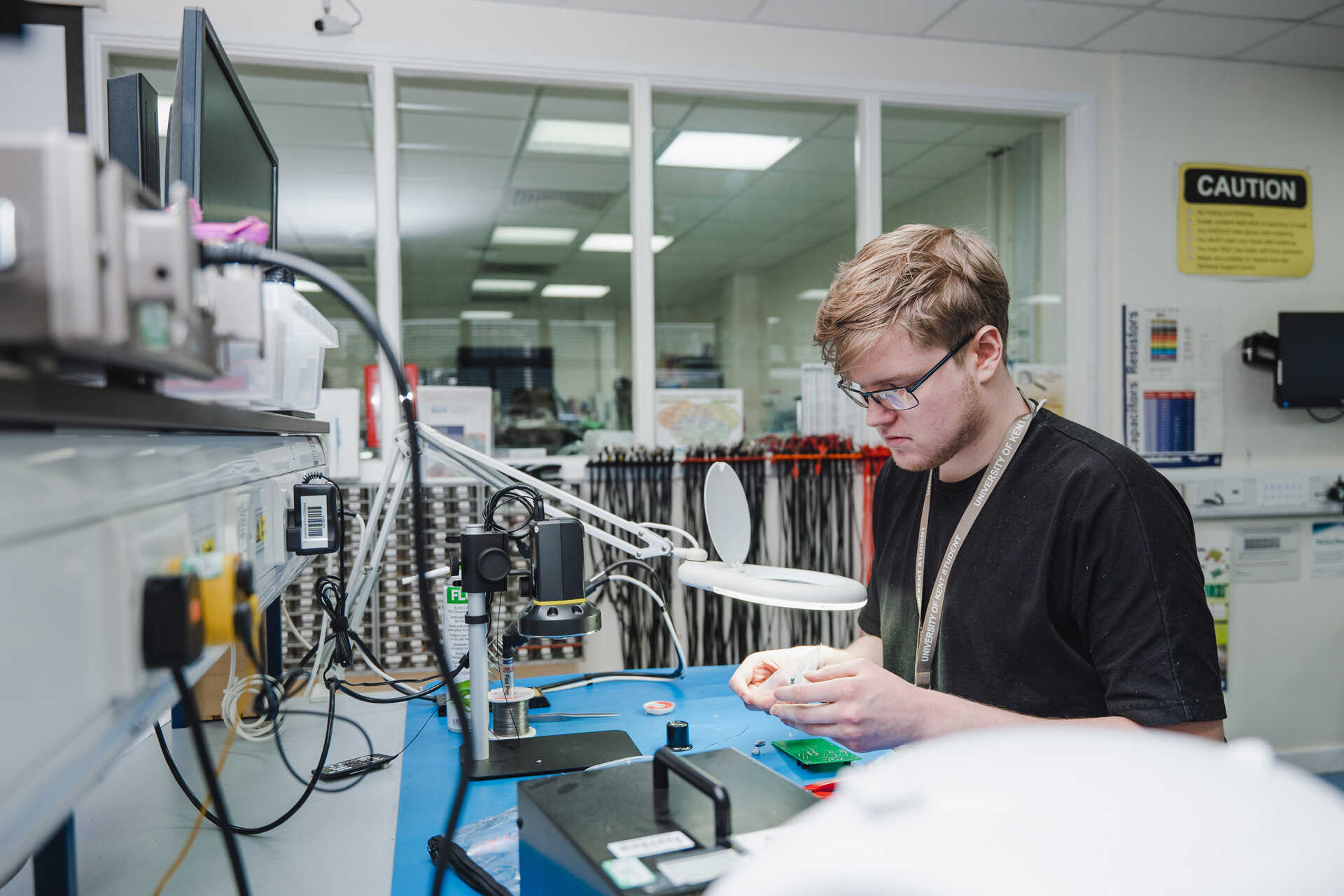
The 2024/25 annual tuition fees for this course are:
For details of when and how to pay fees and charges, please see our Student Finance Guide.
For students continuing on this programme, fees will increase year on year by no more than RPI + 3% in each academic year of study except where regulated.*
The University will assess your fee status as part of the application process. If you are uncertain about your fee status you may wish to seek advice from UKCISA before applying.
Find out more about accommodation and living costs, plus general additional costs that you may pay when studying at Kent.
Kent offers generous financial support schemes to assist eligible undergraduate students during their studies. See our funding page for more details.
You may be eligible for government finance to help pay for the costs of studying. See the Government's student finance website.
Scholarships are available for excellence in academic performance, sport and music and are awarded on merit. For further information on the range of awards available and to make an application see our scholarships website.

We have a range of subject-specific awards and scholarships for academic, sporting and musical achievement.
We welcome applications from students all around the world with a wide range of international qualifications.

Student Life

Kent ranked top 50 in the The Complete University Guide 2023 and The Times Good University Guide 2023.
Kent Sport
Kent has risen 11 places in THE’s REF 2021 ranking, confirming us as a leading research university.

An unmissable part of your student experience.